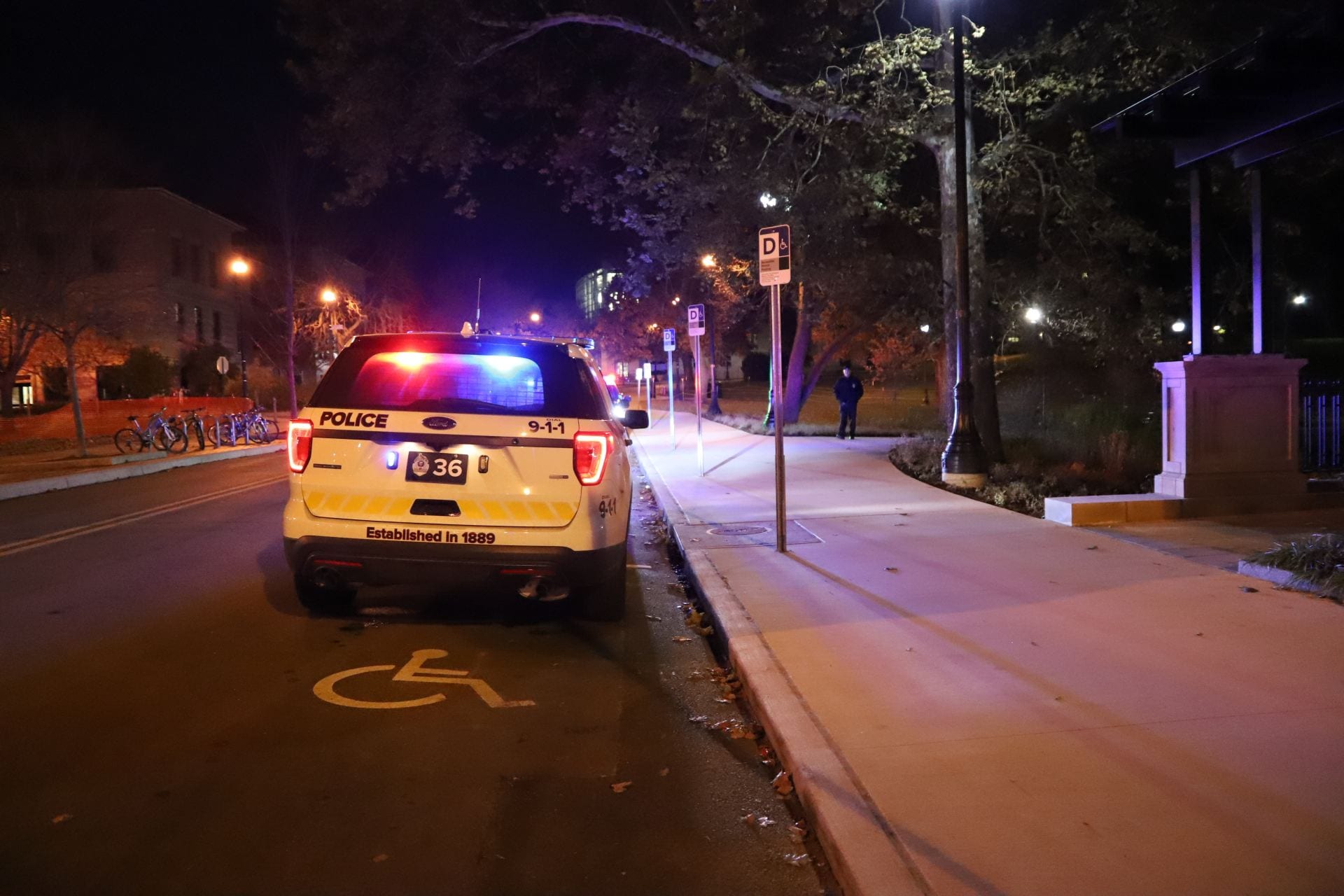Matthew Good, born and raised in British Columbia, Canada, went through a variety of career aspirations before falling into music. He spent time at art school and then a variety of typical slacker jobs, such as “petroleum transfer engineer,” as he likes to call it.
Good was an aspiring writer all the time, trying to find a job in which he could succeed. His stories and poetry slowly turned into song writing, and his friends urged him to put his words to music with their Vancouver folk-rock combo.
“I had no aspirations toward music as a youth,” said Good, who is based in Coquitlam, British Columbia. “I fell into this, really. To be quite honest, I wanted to be a history professor.”
In the early ’90s, the group of musicians he was working with began to show sparks of major success and Good began to gain confidence as a songwriter.
He spent much of his time penning the songs that would make up “Last of the Ghetto Astronauts,” the 1995 debut album from his band of constantly-changing musicians and members.
“I wrote it in a week,” Good said of the album. “From there, it was a matter of getting all the right people together to make it happen.” He said they recorded the album and released it before they had even played a live show together.
“Last of the Ghetto Astronauts” went on to become the most successful independent Canadian rock record ever and featured three national rock radio hits, an astonishing accomplishment for an album that was recorded for 7,000 Canadian dollars.
“We put MGB on the CD, but on the radio they said, ‘Matthew Good Band.’ People would go to the record store and it’d be confusing,” he said. For their most recent release, “Beautiful Midnight,” MGB decided to put Matthew Good Band on the CD to lessen the confusion, thinking that they could always change the name later.
“We just thought we’d write some better songs and then change the name of the band,” Good said. “But it did so well, we were stuck with it, and I’ve hated it ever since. But it’s cool because most people call us MGB anyway, and not only that, it’s completely ambiguous.”
With a name like MGB or Matthew Good Band, either choice won’t pigeonhole the band into a genre or category of music and doesn’t turn people away. Based on the name alone, listeners would have to hear the music before they make a judgment call on whether they like the group.
MGB’s fans have been waiting for the follow-up album to Juno Award-winning (Canada’s Grammy Award equivalent), “Underdogs,” released in 1997. That highly anticipated release, “Beautiful Midnight,” was released in Canada in September of 1999 and was just released at the end of last month in the United States.
The line-up on the latest release includes Good on guitar and lead vocals, Ian Browne on drums and percussion, Rich Priske on bass guitar and Dave Genn on guitar and keyboards. Fueled by a variety of influences ranging from Kurt Vonnegut Jr. and Noam Chomsky to Francis Bacon, U2 and the Pixies, Good is gifted with the ability to write inquisitive songs that strike the core of humanity and poke fun at today’s society all in the same song.
For example, one song, “A Boy and His Machine Gun,” has yielded criticism for its expression of youthful violence in the days since the Columbine shootings. Good said the song is about something else altogether, but he is glad it can be used as a starting point for discussion.
“I wrote it before school shootings became a prevalent thing,” he said. “It’s actually about being checked into a mental institution. But I don’t know, the First World, as opposed to Third World, is a really stupid place. Algerian rebels can walk into some mountain village and hack the legs off kids because they’re pissed off about the International Red Cross vaccinating them, but if some kid walks into a school in Denver and shoots some people down, it means morality is coming to an end. Because, what, we’re so much better than them?”
“Beautiful Midnight,” textured by Good’s layered vocals and intuitive lyrics, provides exactly what he hoped the album would offer – music that makes people think and listen to what the singer is going to say next.
He takes sensitive subjects and places them under orchestral musical arrangements and adds heavy distortion to it all, so people who want to listen to what he is saying can, and those who want to pick it up for the guitar licks and drum beats can as well. For the layman, he’s a subtle Henry Rollins or Zack de la Rocha from Rage Against the Machine.


